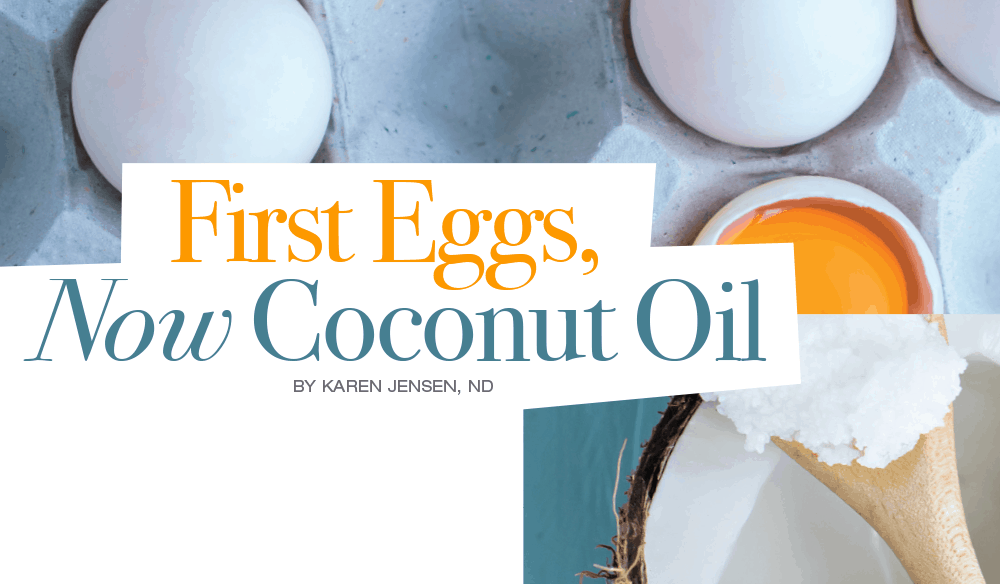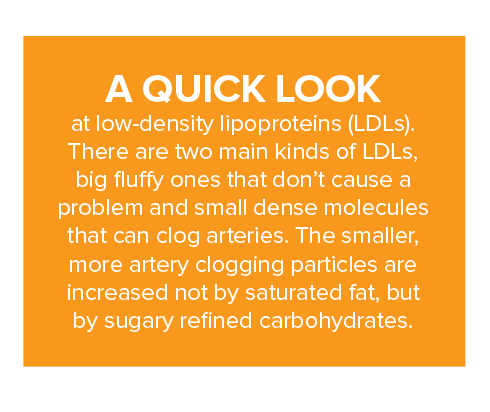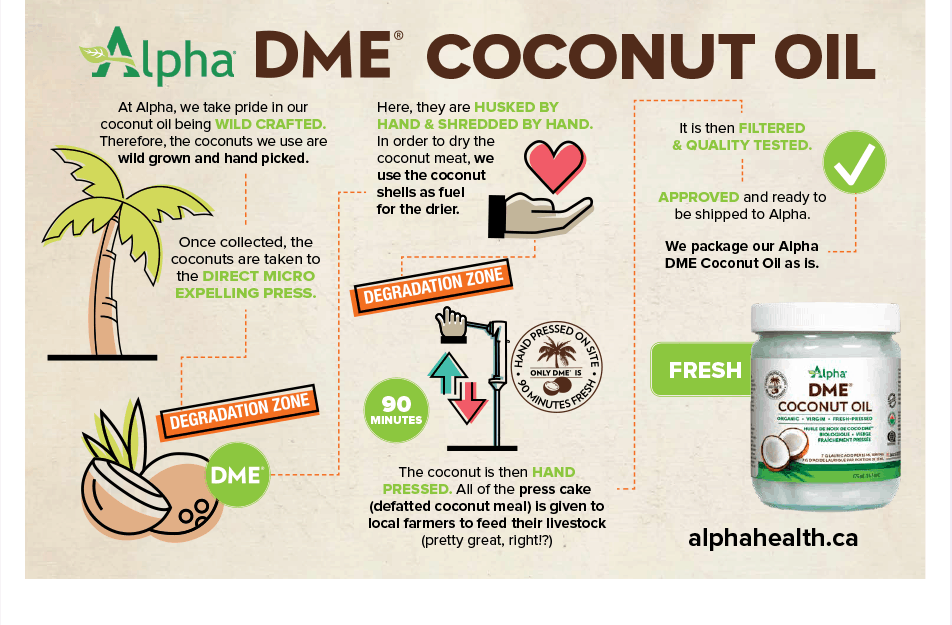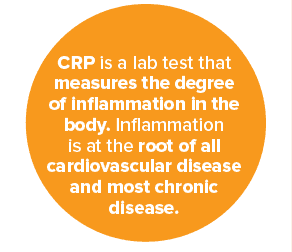
Is coconut oil going down the same path as eggs? As you recall, for years eggs received a bad rap and were linked with high cholesterol. But recently doctors and nutritionists have changed their minds as many of them are now suggesting that eggs are filled with important vitamins, minerals, and protein; that eating eggs every day will not raise cholesterol levels, and that eggs are a nutritionally sound source of food for you.
BREAKING IT ALL DOWN
We have been eating animal products high in saturated fats for centuries, and it wasn’t until companies began commercially refining oils that we started seeing an increase in heart disease.
At the same time, the whole fat phobic fad became the norm and people avoided fats, namely saturated fats, and began eating more refined carbohydrates and were encouraged to eat more polyunsaturated fatty acids (PUFAs), which are heated and become extremely refined vegetable oils.
Now we’re told, whoops, saturated fats aren’t bad and don’t clog the arteries, but rather it is the high carbohydrate or sugary diet that should be the focus of dietary guidelines, and it is carbohydrates that are driving up low-density lipoproteins (LDLs) in a more adverse way.
Is it any wonder so many consumers are confused? If the experts can’t even agree and they change their assessment every few years, what are the rest of us to do? And also, you may be confused as to the source of the supporting data that says “coconut oil is poison”. Maybe something got lost in translation?
UNDERSTANDING FATS AND OILS
All fats and oils that are highly refined at high heat beyond the smoke point are a problem, whether they are saturated, unsaturated, or monounsaturated. A smoke point refers to the temperature at which oil starts to burn and when the beneficial nutrients are destroyed. This also causes harmful free radicals and oxidative stress to develop in the oil, which in turn, leads to inflammation and most chronic diseases when consumed.


LET’S HAVE A QUICK LOOK AT SOME OF THE RECENT STUDIES:
The largest randomized recent trial of coconut oil, olive oil, and butter on blood lipids was published in the British Medical Journal* in 2017.
Summary of the results include:
■ Coconut oil significantly lowered C-reactive protein (CRP) levels in comparison with olive oil, but not compared with butter.
■ There were no signifi cant differences or changes in weight, BMI, central adiposity, fasting blood glucose, systolic or diastolic blood pressure among any of the three intervention groups (olive oil, butter, and coconut oil).
■ There was no evidence of an overall average increase in low-density lipoprotein cholesterol (LDL-C) in individuals allocated either to the coconut oil or olive oil intervention. Coconut oil signifi cantly raised high-density lipoprotein cholesterol (HDL-C), the so-called good cholesterol, compared with both butter and olive oil. Butter also signifi cantly raised cholesterol/ HDL-C ratio and non-HDL-C more than both coconut oil and olive oil, but there were no differences between coconut oil and olive oil for changes in cholesterol/ HDL-C and non-HDL-C.
■ In 2014, Tufts University originally reviewed all of the literature in 2010 and said saturated fats are bad, PUFAs are good, but in 2014 they reviewed all of the literature again and found no benefit to reducing saturated fats or increasing PUFAs, except for omega-3 fatty acids.
■ New research**, in the journal Annals of Internal Medicine, did not determine that people who ate higher levels of saturated fat had more heart disease than those who ate less. The researchers, however, observed a link between trans fats – the now widely maligned PUFAs that are commonly added to processed foods and packaged foods – and heart disease.
 Is it possible that whatever recent data that maligned coconut oil was based on highly refined coconut oil? I think yes! Chilling or the cold-pressed method are some of the different methods of oil preparation.
Is it possible that whatever recent data that maligned coconut oil was based on highly refined coconut oil? I think yes! Chilling or the cold-pressed method are some of the different methods of oil preparation.
On the other hand, cheaper oils are refined, bleached, and deodorized with solvents and subjected to intense heat. This type of processing destroys the good fatty acids, and alters the positive metabolic effects that can cause free radicals and inflammation in the body.
So don’t throw out your coconut oil, but look for virgin brands which care about the environment.












